Evacuations from High-Risk Locations Call +44 (0)1202 308810 or Contact Us →
Hajj and Relating Travel Risks

Our latest Solace AlertPlus looks at recent incidents or world events that may impact on travellers.
Here we look at the travel risks associated with the annual Hajj pilgrimage to Mecca, Saudi Arabia.
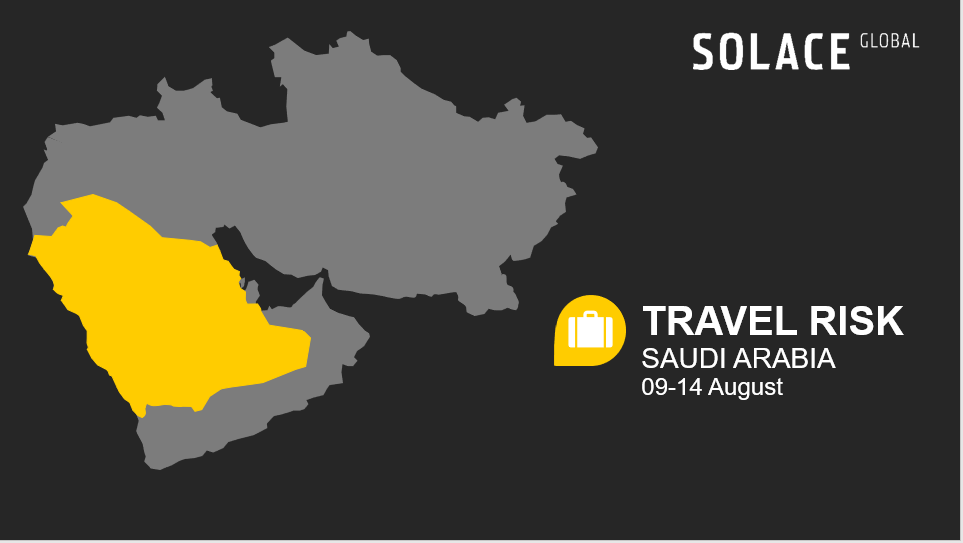
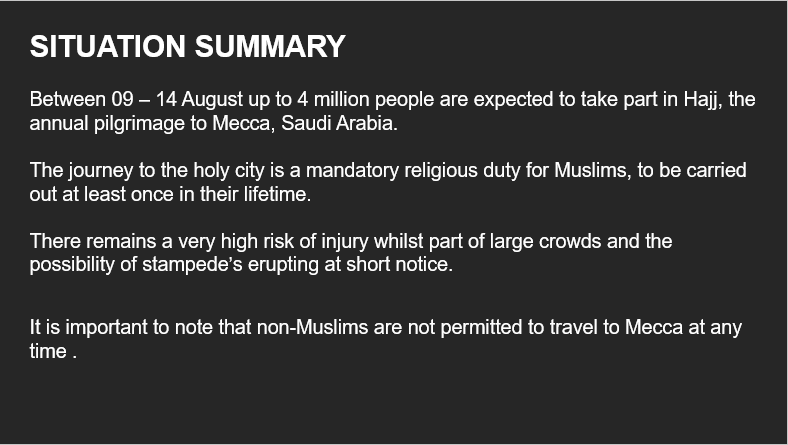
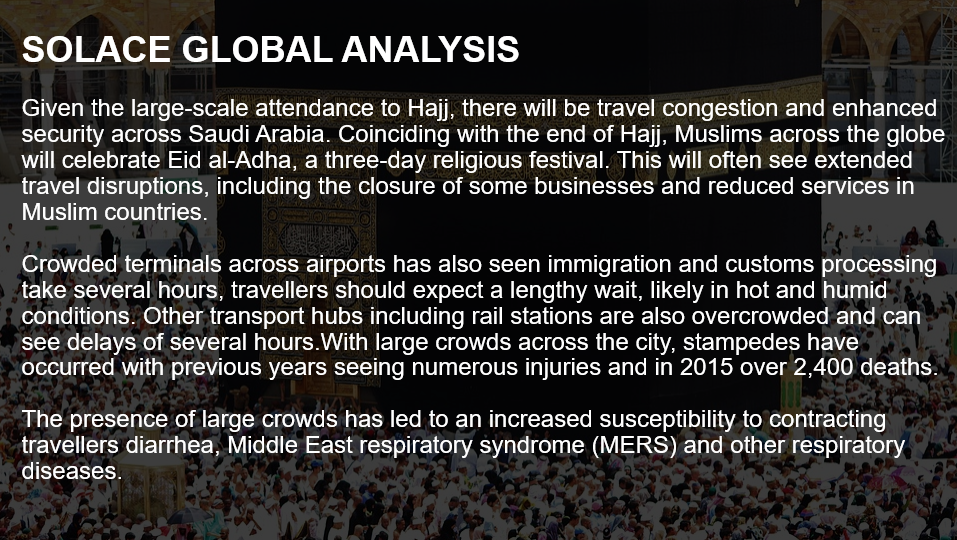
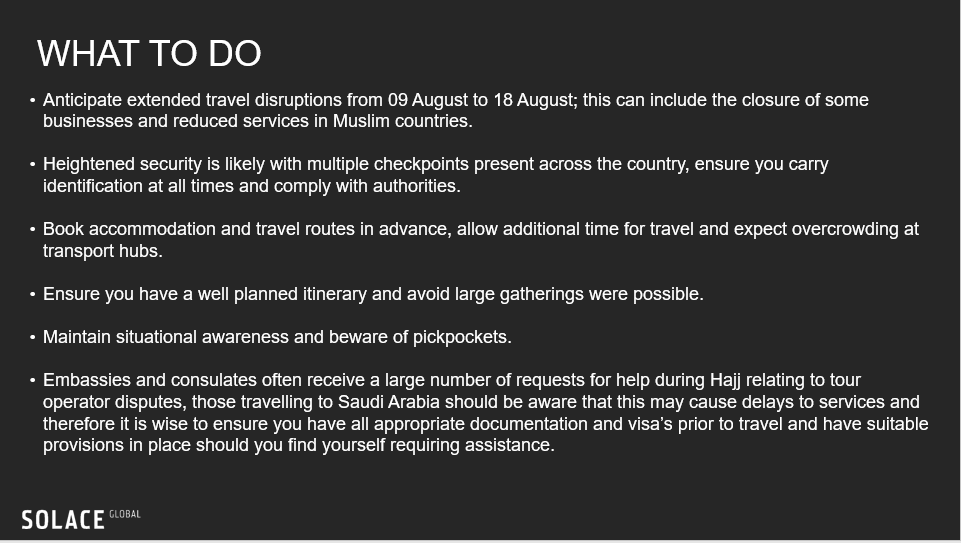
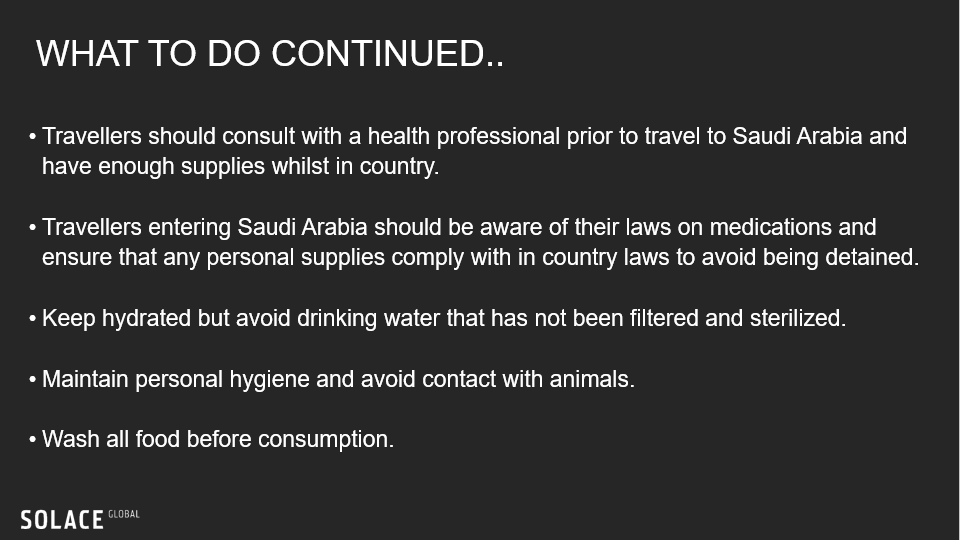
Deadly Monsoon hits South-East Asia
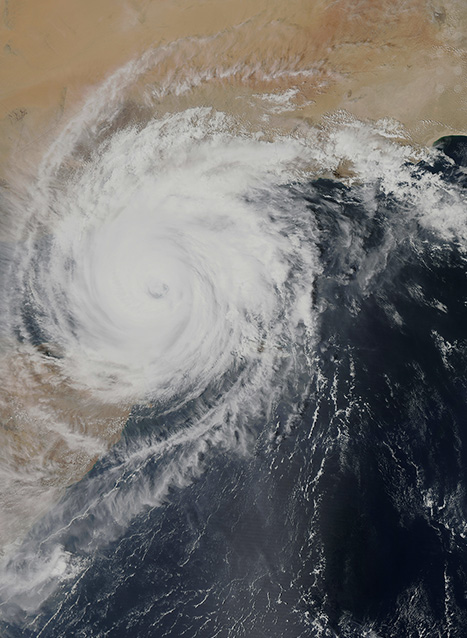
Our latest Solace AlertPlus looks at recent incidents or world events that may impact on travellers.
Here we look at the devastating Monsoon Season that has hit several South East Asian countries.

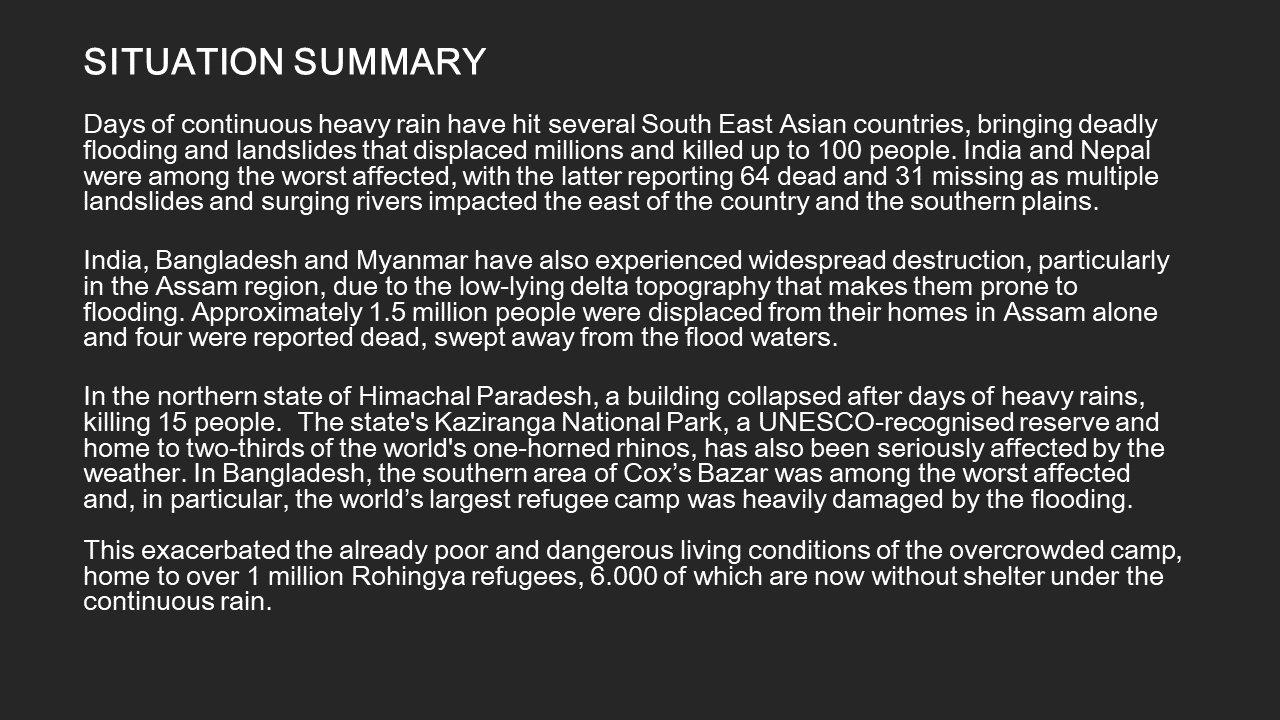

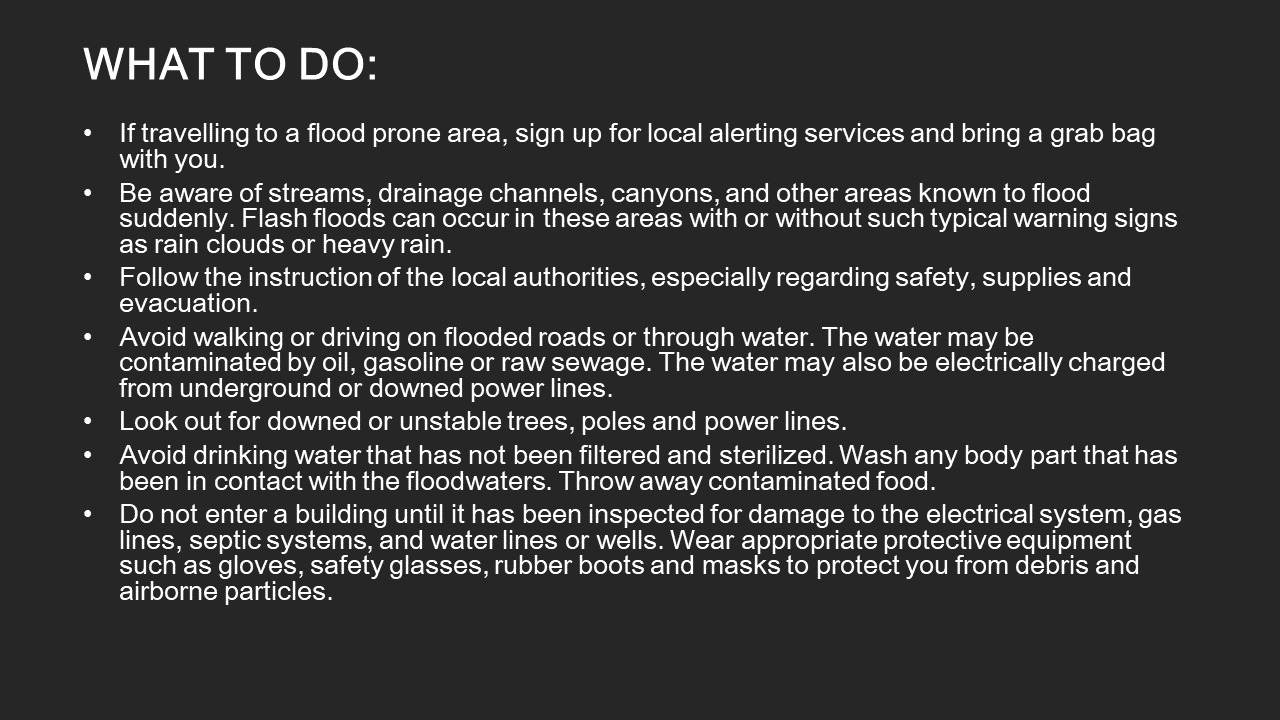
Global Conference for Media Freedom 2019

Over the 10-11 July the Global Conference for Media Freedom 2019 is due to take place in London. The first of its kind, the conference between the UK and Canadian governments comes as part of an international campaign to promote media freedom though focusing on the challenges faced by journalists and other media workers and how to provide solutions.
Journalists often take huge risks to bring us the news and various documentaries from around the world which many of us take for granted. 2018 was reported by UNESCO to be the deadliest year on record for journalists with 99 killed, 348 imprisoned and 60 held hostage. Figures on average have risen around 15% since 2017 and seen reporters and journalists as the main targets for such attacks. Not only do journalists visit danger zones where extremism and warzones still remain but they also experience pressures from corruption, crime and the breakdown of law and order. The conference aims to work to defend media freedom and improve the safety of journalists and reporters across the world.
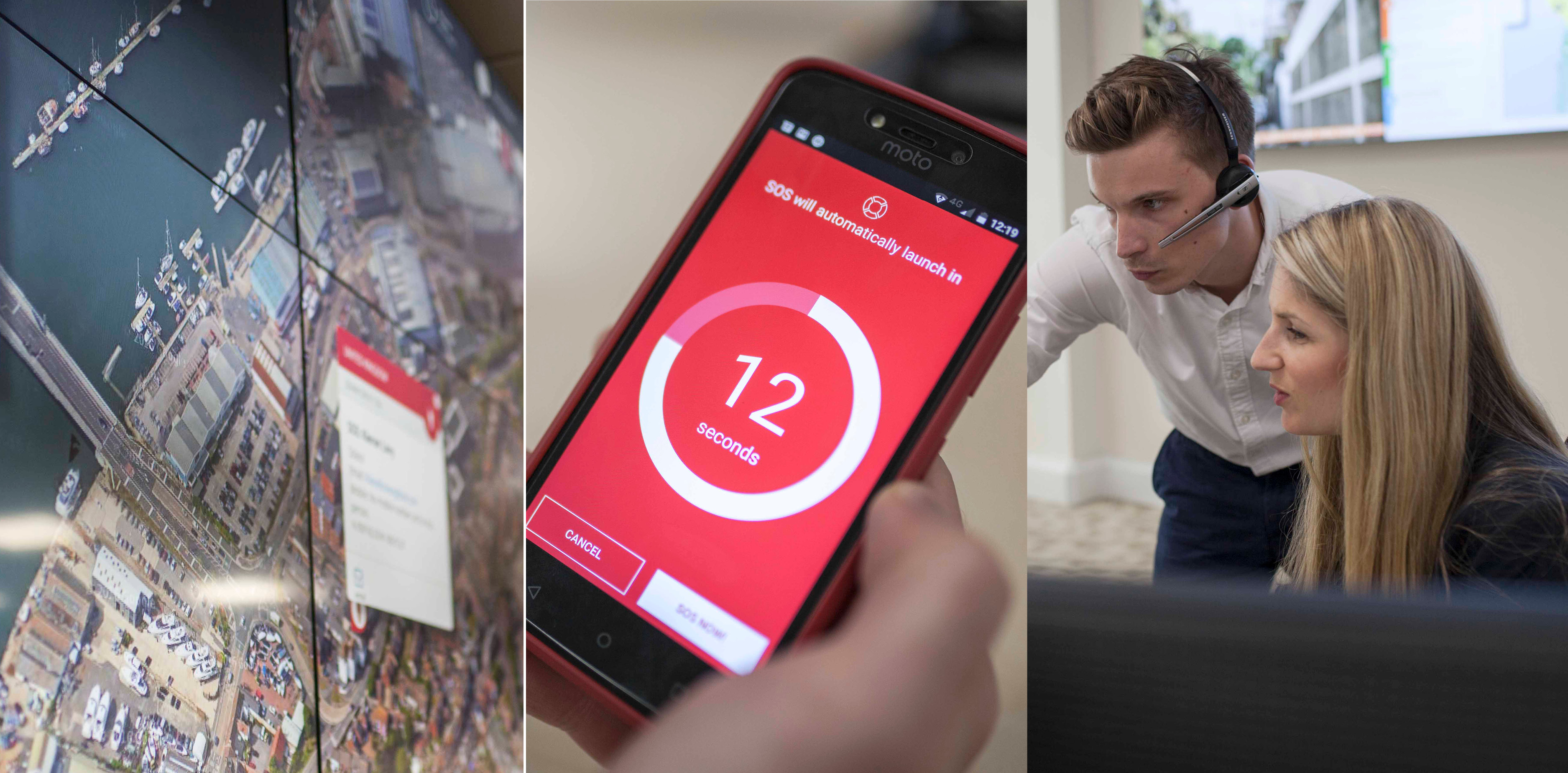
Here at Solace we are proud to have supported a number of media tasks around the world, including Afghanistan, Colombia, Mexico and Syria. Solace understand the difficulties that film crews can face and have provided bespoke low-profile services to journalists, film crews and media teams. Our check- in and intelligence monitoring gives the teams a light touch support whilst filming in hostile circumstances such as with drug cartels, mafia members and local law enforcement and military.
The recent media case studies demonstrate how light touch services have provided security and ensured safety for the teams on the ground:
Low Profile Security Solutions for Drugs Documentary Filmed across Central and South America, Solace have supported several television documentary series, following the illegal narcotics trade and those within the drugs cartels. In some cases filming was dependent on in-country ‘fixers’. Solace helped to journey manage and provide inSIGHT monitoring services, including pro-actively communicating real-time vicinity incidents and tracking of the team’s movements.

One of these documentaries saw Solace assist SAS Who Dares Wins star Jason Fox in ‘Inside the Real Narco’s. His first documentary following the drugs trade: Low profile & light touch support for ‘Inside The Real Narcos’: https://www.solaceglobal.com//news/2018/07/24/low-profile-light-touch-support-real-narcos/
Following on from his documentary ‘The Real Narcos’, Solace were thrilled to be yet again be involved in assisting in Jason Fox’s next journey as he travelled back to Afghanistan. Enhanced Monitoring and Light Touch Support for ‘The Final Mission: Foxy’s War’: https://www.solaceglobal.com//news/2019/05/30/enhanced-monitoring-light-touch-support-final-mission-foxys-war/
As a trusted supplier to major media broadcasters, Solace Global understands the extensive risk management needs of media organisations providing enhanced intelligence, check-in monitoring, overarching support through Solace Secure plus 24/7 Response Assistance and Crisis Management.
Further information and to contact Solace Global: www.solaceglobal.com
Solace achieve Cyber Essentials PLUS certification

Solace Global are proud to announce they have achieved the Cyber Essentials PLUS certification.
Cyber Essentials is a UK government information assurance scheme operated by the National Cyber Security Centre (NCSC) that encourages organisations to adopt good practice in information security. Cyber Essentials was developed in collaboration with industry partners such as the Information Security Forum, the Information Assurance for Small and Medium Enterprises Consortium, and the British Standards Institution.
The UK government launched this scheme on 5 June 2014. By October 2014, the Cyber Essentials certification was required for any suppliers to the UK government who handled any sensitive and personal information. Any companies bidding for government contracts need this certification, and insurance companies have typically lowered premiums for any companies who are certified. The certifications are described as:
The purpose of Cyber Essentials is to improve your organisation’s cyber readiness and ensure that the company’s security is ready to defend against today’s cyber attacks.
The Cyber Essentials certification process requires that there are five technical controls in your company, and in order to pass the certification your organisation must meet all of the requirements:
- Firewalls
- Secure Configuration
- User Access Control
- Malware Protection
- Patch Management
The Cyber Essentials PLUS differs from Cyber Essentials in that an independent assessment of a company’s security controls is required. The assessment verifies that the company does indeed have the five technical security controls in place. The PLUS certification is a much more highly regarded and shows a real improvement in existing cyber security controls.
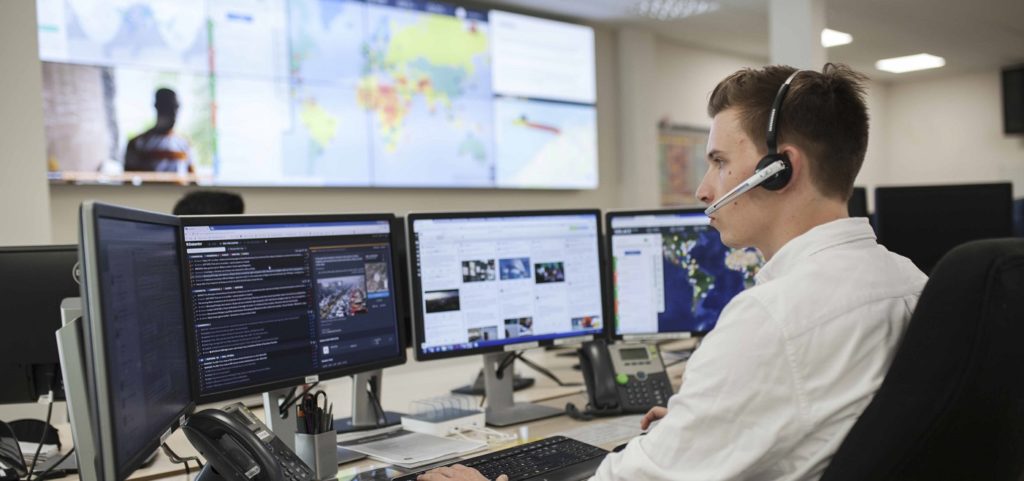
Jon Kersey, Head of Logistics at Solace Global, comments:
“Cyber attacks hit the headlines when they affect large corporations or institutions like the NHS, however the criminals are also targeting smaller businesses on an industrial scale, exploiting any weaknesses in IT security, infrastructure and software. As a risk management company Solace Global understand the importance of cyber security and achieving the Cyber Essentials PLUS certification demonstrates to our clients we have the necessary technical controls in place to keep their data safe.”
Solace proudly supports Craig Haslam’s Cycling Challenge

On 13th June 2019, former Royal Marine Craig Haslam, will undertake an 4219mile cycle around mainland UK using A and B roads. Craig is aiming to complete the cycle in 17 days without crossing any road twice.

Craig says of his cycling challenge: “There are many personal reasons why I have chosen to challenge myself with this cycle, however the main reason is that I wish to raise funds for two amazing charities that have played a huge part in my life.”
The first charity Craig is riding in support of is the Defence Medical Rehabilitation Centre Benevolent Fund, which helps rehabilitate members of the Armed Forces. DMRC used to be based at Headley Court where Craig was a patient for a duration. Craig comments: “I was knocked off my bicycle by a car in Feb 2015. As a serving member of the armed forces, DMRC helped me recover from my life changing injuries.”
The second charity is Surfers Against Sewage who help encourage plastic free communities and marine conservation. Craig explains: “As someone who has spent a lifetime outdoors, particularly in the water, I am all too aware of the state of our environment. My family and I have supported this charity for over 15 years. As the impact of plastic becomes more aware, it is so important to do what we can to protect our seas. As a no nonsense, plain speaking grassroots Marine Conservation charity, SAS is perfectly positioned to do this.”
To donate to Craig’s ‘AB Sea UK Cycling Challenge’ visit: https://uk.virginmoneygiving.com/fundraiser-display/showROFundraiserPage?userUrl=ABSea2019&pageUrl=1
With many of Solace team coming from backgrounds in the Armed Forces, we are proud to be sponsoring Craig in his journey. Follow Craig’s progress around the UK via ‘Solace Tracking’ app or dedicated cycling webpage: https://cycling.solacesecure.co.uk/. Download ‘Solace Tracking’ for free on IOS from the App Store.
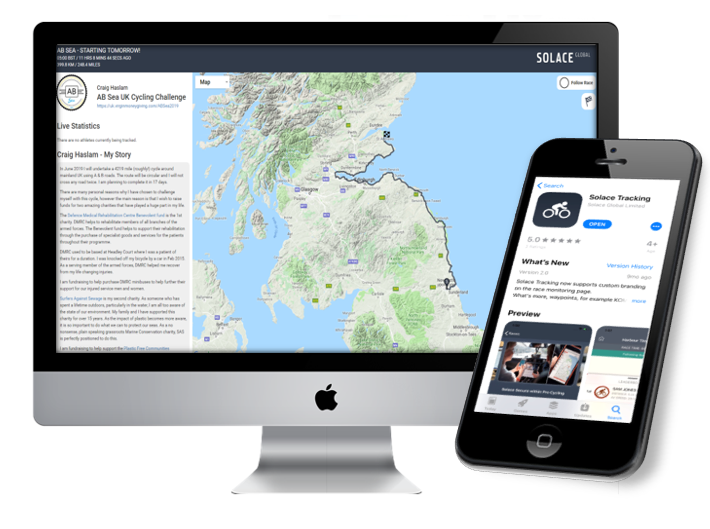
World Environment Day 2019

World Environment Day 2019
World Environment Day is organised to raise awareness on emerging environmental issues which are affecting the well-being of communities as well as the economic development of nations across the world. It takes place every 5 June and it is widely celebrated in more than 100 countries. Every World Environment Day has a host nation where the official celebrations will take place with a yearly theme.
The theme for 2019 is Air Pollution and will be hosted by China, a country where air pollution is an ongoing and pressing challenge. For example, Beijing suffers from some of the worst air pollution globally and even has a term coined to describe symptoms when in the capital; the Beijing cough. This pollution can be attributed to several factors, which include a drastic increase in industrial production, in the number of motorized vehicles, population and manufacturing growth. Despite this, in recent years, China introduced several great initiatives for tackling air pollution through the development of its green energy sector and aggressive tactics designed to cut emissions.
As a result, China is now the world’s leading country in electricity production from renewable energy. In addition, the Chinese government has successfully started collecting an environmental tax to help fund environment-related policies and green investment, especially on car ownership in great metropolitan areas like Beijing and Shanghai. Zhao Yingmin, the head of Chinese delegation at the fourth United Nations Environment Assembly, stated that this a strong opportunity for China to highlight its drive to innovation and progress towards a cleaner environment.
Air Pollution and Health Risk
Pollutants affect earth’s climate and ecosystems around the globe. Although, they seem to be two different and distinct issues, air pollution and climate change are closely related. Increased combustion of fossil fuels contributes to progressive changes in the atmosphere. Carbon dioxide, black carbon and methane are the leading causes of global warming. Consequently, climate change is increasing the risk of extreme weather events including; droughts, flooding and heatwaves.
Moreover, through the rapid acceleration of technology, humans are consuming and producing on an unprecedented scale and, as a result, more harmful gases are emitted into the atmosphere. This has not only repercussions on the environment but also on people’s health. As the below statistics show, air pollution is a public health issue globally:
- The World Health Organisation records 7 million premature deaths annually due to the effects of air pollution. The majority of these occur in South-East Asia.
- In the United Kingdom, outdoor air pollution is responsible for 36,000 premature deaths a year (Committee on the Medical Effects of Air Pollution).
- Air pollution costs the global economy 5 trillion USD in welfare costs annually.
The World Health Organisations explains that poor air quality leads to chronic respiratory diseases, the development of allergies, and even premature death. The breathing in of polluted air is estimated to take up to two years off an average human life. Official statistics show that cities with the worst air quality include; Cairo, Delhi, Hong Kong, Manila, and Mexico City. In addition to this, smog can also affect rural areas. Air pollution index often depends on weather patterns, land topography, and whether polluting industries are nearby. Recent studies show that nine out of ten people worldwide breathe polluted air.
The exposure to pollutant has a significant impact on the health of travellers. Experts suggest that poor air quality can have an immediate impact on an individual’s health. Common symptoms of exposure to poor air quality include: shortness of breath, nausea, headache and breathing issues. Personal factors also contribute to exacerbating the effects of poor air quality on health. The traveller’s general health and wellbeing are factors to consider, pre-existing medical issues such as respiratory problems or allergies are factors that can influence how an individual reacts to pollutants. Age also needs to be taken into consideration: the elderly and children are more susceptible to air pollution-related illness.
The length of the stay and the destination can also affect how much a traveller’s body reacts to poor air quality. A longer trip means that the individual will be exposed to pollutants for a longer amount of time. In addition to this, urban areas are known to have higher pollution levels than rural destinations. Weather patterns and seasonal changes also affect the quality of the air in certain parts of the world.
Tips for travellers
Whilst planning a trip and throughout the stay, travellers should consider the below factors to help mitigate the effects of air pollution.
- Travellers are advised to consult their doctor to determine whether they need specific medications, a breathing mask or inhaler. Travellers with a history of cardiac or pulmonary disease should seek confirmation prior to travelling that they are healthy to travel.
- If air pollution levels are high in a particular destination, travellers should consider a shorter stay in order to limit the exposure to pollutants.
- When it comes to travel, staying up to date with air quality advisories is important. In some cities, reports on air quality can be found on the official website or social media. In addition to this, BreatheLife, a Climate and Clean Air Coalition Initiative led by the WHO and UN Environment, has created an air pollution database that measures the air quality in over 4000 destinations (Available at: https://breathelife2030.org/the-issue/air-quality-in-your-city/).
- Anyone experiencing the symptoms described above should consider reducing physical activity particularly when outdoors. Individuals with pre-existing medical issues should avoid all physical exertion.
- A proper air-filtering mask can be essential when air quality is low. Research shows that masks effectively reduce the exposure to pollutants. In relation to this, the Chinese government suggests wearing a mask when the air quality index is over 200.
- In cities where pollution levels are higher than the average, a number of accommodations and public places are now making clean air their main feature. For example, hotel chains in Bangkok, Delhi, Seoul and Beijing, have air purifiers on offer and smog-free cinemas, oxygen bars and clean air cafes are becoming increasingly popular.
Global Security Forecast – Week 22

GLOBAL HEADLINES
Nepal Double explosion kills four in Kathmandu On 26 May, four people were killed and at least eight others were injured in three explosions setting off in the Ghattekulo and Sukendhara areas of Kathmandu and in the nearby Chandragiri Municipality. According to local sources, police have also defused devices in the Koteshwor and Gwarko areas, as well as other locations across the country, such as Pokhara and Annapurna. Initial investigations suggested that the explosive devices detonated by accident by the perpetrators, which were activists affiliated to the outlawed Communist Party of Nepal’s Maoist Centre CPN (M). The authorities believe that the activists were planning on setting off the devices during a general strike, also known as a bandh, planned on 27 May, which was called by the CPN (M) in the first place. The group has officially claimed responsibility for the blasts. In the aftermath of the attack, sources reported that the Maoist splinter group was under suspicion, as it was suspected to have carried out a similar attack in February. Solace Global Comment: Since the civil war ended in 2006, and the signing of the Comprehensive Peace Accord in 2006, Nepal has been relatively peaceful. The main arm of the Communist Party of Nepal (not affiliated to the CPN (M)) is even running in the elections in 2020. However, hard-lines factions such as the CPN (M) continue to stage sporadic attacks. As such, there is the potential for further violence. The risk is higher in the Terai region but may also target Kathmandu and other areas of the country.United States of America Arkansas and Mississippi rivers close to breaching levees in multiple states Many rivers in the central United States have been flowing out of their banks since the middle of March, causing growing concern and disruptions. A period of heavy rain at the end of May has caused levees to breach along the Mississippi and Arkansas rivers. This has resulted in thousands of homes being put in danger in the surrounding areas. On Friday, the Dardanelle Levee on the Arkansas River breached, but fortunately, the majority of the residents in the area at risk of flooding had already evacuated beforehand. As it stands, two other levees have seen worryingly high water levels; however, none have failed so far in the state of Arkansas. One levee has failed on the Mississippi River in West Quincy, Missouri. The concern in the days ahead, according to officials, is the ongoing pressure that the flooding has put on the barriers. The Arkansas Department of Emergency Management has stated that they have never held back so much water for such an extended period of time. Should any number of them fail, then the flooding is expected to affect thousands of homes along the Arkansas and Mississippi rivers. In an effort to tackle the water levels, the Morganza Spillway will be opened as soon as Sunday, 2 June. There has been some criticism that this measure has taken too long to be implemented, but authorities are concerned that the operation of the floodway itself can cause damage to properties in the surrounding region.
Thailand Two killed and at least 14 others injured in explosion in Pattani On 27 May, two people were killed, and 14 others were injured when an improvised explosive device detonated near a market in the Nong Chik district of Pattani. Local sources reported that the attackers intended to harm a crowd of shoppers in what was allegedly retaliation for the killing of a rebel commander by government security forces a few days earlier. Heightened security measures were reportedly set in place in Yala, Pattani, Narathiwat and four districts of Songkhla. The Thai authorities claimed that a group of separatist insurgents was behind the attack and further related violence cannot be ruled out. Solace Global Comment: The insurgency’s roots in the south of Thailand date back to the country’s conquest of the Malay Sultanate of Patani in 1948. Since then, Thailand’s three southernmost provinces, Pattani, Narathiwat, and Yala have become a hotspot of ethnic insurgency which, since the start has led to 6,000 deaths. By the mid-1950s, a separatist insurgency was formed and, since 2004 got worse, with several groups launching regular attacks on civilians and security forces as well as tourist places and transport infrastructure. These have included arson, bombings and shootings. The conflict, even on a low-intensity level, is taking its toll on the local population and their livelihoods. Since 2006, Martial law has been in place in different areas of southern Thailand. This means that security forces can detain suspects without official charges and apply censorship to the media. Advice: It is advised against all but essential travel to the provinces of Pattani, Yala, Narathiwat and southern Songkhla province due to the heightened threat of attacks and violence. Authorities suggest that attacks can be indiscriminate and there is a high chance for them to occur on symbolic dates or holidays. For this reason, individuals are advised to monitor local media reports and maintain situational awareness at all times, notably in public places. During this time, local security officials have enhanced measures to enforce the rule of law. It is recommended to adhere to instructions and safety measures, such as identity checks, and avoid open criticism of the current government or its officials.
International Quds Day Protests and counter-protests anticipated on 31 May – 2 June International Quds Day (often known simply as Quds Day) is an annual event held during the final week of Ramadan, which was created by the Islamic Republic of Iran in 1979 to express support for the Palestinians and oppose Zionism and Israel. Local events and celebrations in 2019 will take place between 31 May and 2 June in multiple locations worldwide; including in European, North American and Australian cities, under the auspices of pro-Iranian Muslim organisations. Fiery rhetoric calling for the elimination of the state of Israel is common at Quds Day events. In previous years, some events have attracted a range of anti-Israeli demonstrators including supporters of Hamas and Hezbollah, as well as neo-Nazis and conspiracy theorists. Hezbollah flags have been prominently flown in large numbers at several events. A recent rise in anti-Semitic attacks and rhetoric in the west has heightened sensitivities around Quds Day rallies, which are often described as anti-Jewish and have attracted bitter counter-protests. Authorities in several countries have indicated that open support of banned organisations at 2019 Quds Day events will result in arrests. Solace Global Comment: International Quds Day events have the potential to become violent; for example, events in the Palestinian territories have focused on the Israeli border in recent years and have attracted strong countermeasures from security forces attempting to disperse the large crowds. In 2018, an event in Tehran saw the burning of a large effigy of Donald Trump in response to his decision to move the US embassy in Israel from Tel Aviv to Jerusalem. In Europe, Quds Day events can also often feature violent rhetoric directed at both Israel and the Jewish population. Most recently, a speaker at a 2018 Quds Day event in London, linked Zionists to the burning down of a residential block in London. At the 2018 rally in Berlin, antisemitic signs comparing Zionism with Nazism and calling for a boycott of Israel were widely distributed. Clashes are also possible, with counter protests planned. In 2018, counter-protesters clashed with police at many events worldwide. Social media sources indicate that Jewish groups in several Western cities are organising demonstrations in opposition to Quds Day events. Support for extremist organisations has also drawn members of the far-right to protest against Quds Day parades. At a 2018 event in London, members of a group of far-right football fans were cleared from the area after attempting to break into the area in which pro-Palestinian demonstrators had congregated in.
Hungary Boat capsizes in Danube River killing at least seven people At 21:00 local time on 29 May a tourist boat carrying 35 people, including 33 South Korean nationals, collided with a cruise ship and capsized on the Danube River in Budapest in the vicinity of the Bulgarian Parliament. Search and rescue operations at the time were affected by strong currents and adverse weather. It has been reported that least seven people were confirmed dead and at least 21 others are missing; however, hopes have now all but faded that the remaining 21 people would be found alive. Authorities reported that none of the people on board were wearing life jackets and launched a criminal investigation into the cause of the collision. As a result, on 31 May, authorities confirmed that the captain of the cruise ship has been taken into custody. The vessel is set to be lifted from the river in the coming days.
Canada Mandatory evacuation orders issued in Alberta province due to uncontrolled fires Ongoing wildfires in the northern part of Alberta province have triggered mandatory evacuation warnings in the Municipal District of Lesser Slave River, High Level, Mackenzi county, Northern Lights county, Wabasca, and Big Stone Cree Nation (Alberta province). Due to strong winds and dry conditions, the so-called Chuckegg Creek fire, located southwest of the town of High Level, is spreading at an uncontrolled rate. The authorities have closed Highway 1 between High Level and Hay River, in Northwest Territories and confirmed that a major bridge linking the Northwest Territories to southern Canada in the vicinity of Steen River has been closed, while the CN Rail railway bridge, also at Steen River, has burned down. It has been reported that emergency services operations are ongoing; however, containment efforts have been hindered by hot temperatures and strong winds. In addition to this, forecasts indicate that fires are expected to continue in the days ahead. Further evacuation warnings and road closures are expected. Solace Global Advice: Individuals residing under a wildfire warning are advised to adhere to authorities’ instructions and leave as soon as possible by the safest route available. Further information regarding travel disruptions, such as road closures, and evacuation notices are available at: https://511.alberta.ca/#:Alerts
United Kingdom President Trump’s UK state visit, 3-5 June United States President Donald Trump and First Lady Melania are set to make a state visit to the United Kingdom between 3 and 5 June with a special ceremony, reserved to the heads of state, scheduled at the Buckingham Palace gardens. During his stay, the President will meet members of the royal family including the Queen, the Duke and Duchess of Cornwall and the Duke and Duchess of Cambridge and the Duke of Sussex. A private meeting with Theresa May and his participation to the D-Day commemorations on 5 June are also planned. Thousands of people are expected to gather in London to protest against President Trump. Groups such as the Stop Trump Coalition and Stand Up to Trump have announced that they will be holding demonstrations. During the president’s previous visit to the UK in 2018, an estimated 250,000 people protested in general opposition to Trump’s views on issues such as immigration, climate change and LGBT rights. An anti-Tump protest named Together Against Trump, is scheduled to take place on 4 June from 11:00 in Trafalgar square. Related demonstrations nationwide are also planned, including in Manchester, Birmingham, Edinburgh and Belfast. Advice: Clients and travellers should avoid all gatherings due to the likelihood of delays and congestions. Be aware that clashes between police and protesters are also possible. Additionally, security around the president is extensive, be prepared for delays on roads and extensive security around locations visited by the president.
Spain Champions League Final between Tottenham Hotspur and Liverpool to be held with record security in Madrid According to local police, Madrid will deploy a record number of police and security personnel ahead of Saturday, 1 June’s all-English Champions League Final between Tottenham Hotspur and Liverpool. Authorities are expecting around 67,800 fans to attend the clash at the Wanda Metropolitano stadium. As a result, 4,700 police will be deployed alongside drones and other remote technology in an effort to help coordinate and keep watch over what the authorities are deeming as a “high risk” event. The police will be supported by civil protection personnel, fire corps and other emergency services, altogether representing the largest security operation that the city has held. As part of the anti-terrorism efforts, heavy vehicles will be banned from driving near the stadium and designated fan zones for 24 hours starting at 08:00 local time on Saturday, 1 June. Additionally, there are concerns that two groups of English fans, spending the day in the Spanish capital under good weather, may trigger alcohol-fuelled confrontations. In an effort to avoid clashes between rival fans; fans will, therefore, arrive at different airport terminals and take different metro lines to the stadium from their separate meeting places in the city – the Colon Square for Spurs fans, and the Felipe II Square for Liverpool supporters. Advice: The Spanish capital is likely to be heavily congested for the entirety of Saturday and Sunday. Clients attending the match, or in Madrid this weekend, should employ additional precautions.
- Adhere to all instructions issued by the police and other security officials.
- Play close attention to personal belongings and bags; pickpockets will use the event as an opportunity to target unsuspecting fans and travellers.
- Watch your drinks at bars and other establishments, many are likely to be busy and criminals may target drinks in the chaos.
- Use public transport to travel to the stadium, there will be no parking facilities near the stadium. Be aware that public transport is likely to be overcrowded, as such, ensure you leave an adequate amount of time to complete journeys and for unexpected delays.
- It is expected to be 33 degrees Celsius and sunny on Saturday during the day; ensure you drink enough water to stay hydrated, especially if also consuming alcohol.
- Download the Champions league leaflet for further information; https://finalmadrid2019.esmadrid.com/wp-content/uploads/2019/05/Final-UEFA-Champions-League-1.pdf
- While, given the security, a terrorist attack remains unlikely, Madrid could be the target of terrorist attacks. Remain vigilant at all times and adhere to police instructions. If an attack occurs whilst you are in the stadium, listen carefully to the PA system; if told to evacuate, do so immediately and DO NOT wait around to film or take photos.
SIGNIFICANT DATES & EVENTS
| Date | Country | Event | Potential for Unrest |
| 30 May | Anguilla | Anguilla Day | LOW |
| 30 May | Trinidad and Tobago | Indian Arrival Day | LOW |
| 31 May | Worldwide | International Quds Day | MODERATE |
| 1-2 June | Israel | Jerusalem Day | MODERATE |
| 1 June | Kenya | Madaraka Day | MODERATE |
| 1 June | Mongolia | Mother and Child Day | LOW |
| 1 June | Spain | 2019 UEFA Champions League football tournament final in Madrid | LOW |
| 2 June | Italy | Anniversary of the Republic | LOW |
| 3 June | Australia | Western Australia Day | LOW |
| 3 June | Uganda | Martyrs’ Day | HIGH |
| 4 June | Malaysia | King’s Birthday (public holiday) | MODERATE |
| 5 June | Denmark | Constitution Day (Bank holiday) | LOW |
| 5 June | Equatorial Guinea | President’s Birthday | MODERATE |
| 5 June | Seychelles | Liberation Day | LOW |
| 6 June | South Korea | Memorial Day | LOW |
| 6 June | Sweden | National Day | NEGLIGIBLE |
| 7 June | Bahamas | Labor Day | LOW |
| 7 June | China | Dragon Boat Festival | LOW |
| 7 June | Malta | National Holiday | LOW |
Enhanced Monitoring and Light Touch Support for ‘The Final Mission: Foxy’s War’

Filmed as part of a television documentary series with Jason Fox (SAS: Who Dares Wins and The Real Narcos) as he sets out on a personal journey back to Afghanistan.
Following on from his documentary ‘The Real Narcos’ where he followed the illegal narcotics trade and those involved with drug cartels, Solace were thrilled to be yet again be involved in assisting in Jason Fox’s next journey.
The Final Mission: Foxy’s War has been commissioned for Channel 4 and produced by Tom Pearson and Jason Fox at Plum Pictures. The series will be televised on Channel 4 on 30th May 2019.
Jason, a former Special Forces soldier has endured multiple tours in Afghanistan, his latest documentary sees him return to the country where he lost fellow service men and fought for his life. After spending over three years fighting the fiercest battles Jason was left with Post Traumatic Stress Disorder (PTSD) which has seen him open up and encourage others to do so. In returning to the country that defined Jason, today he looks to understand the complexities of the people involved, including former enemies.
Speaking on Facebook Jason Fox said ‘This time in Afghanistan, I was able to find moments of peace and could be temporarily distracted from the war that continues to this day. Talking to those who are living and fighting in the area quickly reminded me that peace is still a distant dream for many’.

Assessing the risk
Afghanistan remains an active war zone with high levels of conflict. The Afghanistan government maintains little control over large areas of the country and continues to fight against both Taliban insurgents and Islamic State terror groups. In December 2018 Afghanistan was claimed to be the world’s deadliest country for terrorism, seeing over one-quarter of all worldwide terrorism related deaths during 2017.
The Taliban, who refer to themselves as the Islamic Emirate of Afghanistan are a Sunni Islamic Fundamentalist political movement and military organisation. The Taliban remain responsible for up to 77% of attacks conducted within the country, with the Islamic State terror organisation conducting further attacks.
The United Kingdom and United States have long placed military forces in Afghanistan. Although the UK announced it had ceased all combat operations in Afghanistan and withdrew its combat troops in 2014, several British troops remain in the country with Prime Minister Teresa May announcing in August 2018 that at least 440 British military personnel will join the NATO mission in Afghanistan.

Monitoring the mission
Prior to the deployment of Foxy’s team, Solace’s Tactical Intelligence Analysts conducted detailed location reports, for both locale filming and accommodation options. The reports contained a variety of threat assessments and recommendations across multiple regions. The report provided the team with assistance on their filming schedule and Solace were able to advise where enhanced levels of security would be necessary.
With filming crews in high-risk areas, Solace Global managed an enhanced monitoring and support service that included the provision of (inSIGHT) services*, including pro-actively communicating real-time vicinity incidents and tracking of the team’s movements. The team had scheduled check in’s and a comprehensive response protocol plan. This proactive capability along with access to Solace Global tracking platform (Solace Secure), provided the team with vital intelligence to mitigate the risks.
Throughout the film crews time in Afghanistan, Solace informed the team of a variety of threats posed to them, aided by trusted and experienced partners on the ground, these included:
- A fire in Mandawi Market, Police District 2 – resulting in localised travel disruptions and a heavy emergency service presence. With a tight filming schedule the early warning of travel disruptions in these areas allowed the team to mitigate against any delays to their itinerary. Our in-country partners were able to verify incidents with live updates and imagery.
- An official threat report regarding targeted suicide attacks – the news of a flash threat report was issued shortly after Jason and the film crew arrived in country. The report indicated that there was an elevated threat of suicide improvised explosive device attacks against unknown international venues, all expected to occur over the next three days. Solace recommended exercising caution and avoidance of embassy’s, NGO’s and other prominent international venues within the Shahr-e New district (PD09).
- Multiple demonstrations being held across Kabul – certain areas in which demonstrations occurred had a high risk of violence and/or attacks and required avoidance from the film crew.
*inSIGHT (Security/Intelligence/Guidance/Help/Tracking) ensures your people and assets are in constant view of the Solace 24/7 response team. Our pro-active monitoring service will monitor your personnel and assets for you and respond to vicinity risks and incidents. InSIGHT forms part of our Protect series of services which also includes, Tracking & Technology (Solace Secure),Journey Management, Executive Protection & In-Country Security, Crisis Management, Evasion and Response Services.

Emergency support on-and-offline
In the case of an emergency, Solace Global’s vetted in-country support teams would provide the necessary and appropriate level of assistance. Combining in-country physical assistance with intuitive travel tracking technology and robust response protocols – Foxy’s team were as prepared and protected as they could be for such a high-risk environment.
As part of the reaction and response plan, all personnel operating on the ground had access to Solace Global’s tracking capabilities and online platform, Solace Secure. The app functionality enabled the teams to ‘check-in’ when scheduled and if asked at any time, this is crucial when an incident occurs within the vicinity. The Solace Secure app also provided the ability to hit an SOS alarm which would notify the necessary support team’s in-country and back at Solace Global HQ.
Don’t miss THE FINAL MISSION: FOXY’S WAR Channel 4, Thursday 30 May
As a trusted supplier to major media broadcasters, Solace Global understands the extensive risk management needs of media organisations providing enhanced intelligence, check-in monitoring, overarching support through Solace Secure plus 24/7 Response Assistance and Crisis Management.
Jason Fox’s previous series; Meet the Drug Lords: Inside The Real Narcos was televised on Channel 4 on 2 August 2018 and can be found online on https://www.channel4.com/press/news/meet-drug-lords-inside-real-narcos.
Click for further information About Solace Global or Our Services
Images of The Final Mission: Foxy’s War credited to Channel 4 and Plum Pictures.
Global Security Forecast – Week 21

GLOBAL HEADLINES
United States of America
Protests against legislation banning abortion in Alabama and other states
Thousands of people have turned out across America to protest against recent state legislation banning abortion in several states including Alabama, Mississippi, Ohio and Missouri. The #StopTheBans protests were organised by at least 50 civil liberties groups including the American Civil Liberties Union (ACLU) and the National Association for the Repeal of Abortion Laws (NARAL). Protests took place outside law courts, state legislature buildings and main roads across multiple states. Social media identified at least 300 individuals attending a demonstration in Lincoln, New England. Several hundred people, including several leading Democratic politicians, protested outside the Supreme Court in Washington D.C. Other locations for demonstrations include the Massachusetts State House, Iowa, Birmingham, New York and West Hollywood. Participants have been identified holding placards saying: ‘Stop the war on women’ and ‘Keep abortion legal’. The protests were organised after multiple state legislatures made abortion illegal. In Missouri, lawmakers said abortion is illegal after the first eight weeks of pregnancy. Alabama’s governor signed the most restrictive law making it illegal in all cases, including in the event of rape and incest. Doctors who perform the abortion, as well as those getting it, can face up to 99 years in jail. This is the same punishment as those found guilty of murder or capital crimes. Other states, including Ohio, Louisiana and Kentucky have passed ‘heartbills’ making it illegal to get an abortion once a heartbeat is detected which is around the six-week stage, before women discover they are pregnant. The laws have been passed in what is seen as an attempt by the state legislature to generate a case in the Supreme Court and repeal the infamous 1973 Roe vs Wade decision. Roe vs Wade is the name of the landmark 1973 case in the Supreme Court in which judges gave women the right to privacy that protected a women’s ability to obtain an abortion. The decision to obtain an abortion must be made after weighing up the threat to the health of the mother versus pre-natal life. The decision effectively ended state interference in the process. The case was brought to the Supreme court following the attempts of a Texan citizen to legally and illegally obtain an abortion. The individual attempted to obtain a legal abortion by stating she was raped but could not prove it so tried to have it done illegally. This failed as the facility had been shut down by the Texan state. The final decision was that Texas’s ban on abortion was unconstitutional. Solace Global Comment: The issue of pro-life versus pro-abortion has been debated ever since the 1973 Roe vs Wade decision. State legislators are attempting to get this case sent to the Supreme Court for discussion as the make-up of the justices in the court favours conservative values such as pro-life. The intention of the states is to have the decision repealed or at least amended to make it a state issue instead of a federal law. This would re-give the states the power to decide if citizens are allowed to get the procedure. Pro-abortion groups have declared their intent to continue protesting the issue and forcing the states to repeal the recent laws. Many leading Democratic politicians, including those who have put their names forward for the upcoming presidential elections, have vowed to apply political pressure on the issue in an attempt to repeal the recent decisions.Indonesia
Unrest has resulted in rioting and fatalities throughout the country
Tensions in Jakarta have subsided following civil unrest over the outcome of the election results which broke out between 21 and 22 May. Public transportation in central Jakarta has largely resumed as a result of the calming of the unrest, and offices have reopened in the capital’s downtown area. Efforts are now underway to clear the debris left over from the riots that occurred on the previous days. A police spokesman claimed that protesters had dispersed by 07:00 local time on 23 May. Restrictions were placed on the use of social media messaging applications, which will remain in effect until at least 25 May. Police have reported at least 257 arrests and some protesters are alleged to have admitted to accepting payments for engaging in violence ahead of the demonstrations. The authorities even stated that two rioters are alleged to have confessed to pledging allegiance to the so-called Islamic State (IS). However, it is unclear if this was an effort to discredit the protests by the authorities or if they genuine affiliates of IS. In total the unrest resulted in the death of eight people and more than 700 injuries. An Australian Broadcasting Corporation news crew also said it was attacked without warning by a mob. Nearly 60,000 security personnel were deployed Thursday 23 May and further security deployments are likely this weekend.Iran and Palestine
Quads Day
International Quds Day is an annual event held on the last Friday of Ramadan, 31 May, that was originally initiated by the Islamic Republic of Iran in 1979 to express support for Palestinians and oppose Zionism and Israel. Protests are held across various cities mainly in the Arab and Muslim world against the occupation of East Jerusalem. Critics of Quds Day argue that it is inherently anti-Semitic. Marches outside of the Muslim world are smaller but have drawn sizable crowds. In London, demonstrations have drawn upwards of 3,000 people, while Berlin saw 1,600 protestors in 2018. Rallies were held in at least 18 cities across the United States in 2017. In Iran, the government sponsors and organizes Quds Day rallies, and these celebrations have had a long tradition of inciting anti-Semitic attacks. Additionally, in Iran, demonstrations against some of the country’s other rivals, including the United States and Saudi Arabia, do also occur. Advice: Quds marches should be avoided; these protests do incite attacks on traditional enemies and elevated levels of violence towards westerners cannot be ruled out.Libya
Rockets hit luxury hotel in Libyan capital
On 24 May, rockets hit a luxury hotel in Tripoli; understood to be the Rixos hotel. The Government of National Accord (GNA) have blamed the attack on the Libyan National Army (LNA) who are currently trying to capture the city. The interior ministry published pictures of the damage to the hotel’s roof. The hotel is understood to be where lawmakers opposing the offensive by LNA troops loyal to Khalifa Haftar have been meeting. Further details remain unconfirmed. To read more about the ongoing conflict in Libya, and the current impasse in the conflict, please have a look at our conflict report: https://www.solaceglobal.com//report/conflict-analysis-understanding-libyan-impasse/United Kingdom
Theresa May has announced her resignation as the Brexit Impasse continues
British Prime Minister Theresa May has announced her resignation as a Conservative leader. The PM will step down on 7 June, allowing time for the Conservative party to decide her replacement. The two-week handover period will mean that May will be the country’s leader when US President Donald Trump makes his state visit at the start of June. Among the favourites to become the next prime minister are former London Mayor and Foreign Secretary Boris Johnson, who is a more hard-line Brexiteer and member of the European Research Group (ERG, a group of hard-line Brexiters chaired by Jacob Rees-Mogg who believe in a more hard-line Brexit). Dominic Raab, another prominent Brexiteer and member of the ERG (though his constituency voted remain). Michael Gove, not a member of the ERG but did support leave during the referendum. Graham Brady, member of the ERG (though his constituency strongly voted remain). Jeremy Hunt, voted remain in the referendum, as did his constituents, and has been the foreign secretary since Johnson’s departure from the role. Other possible candidates include Andrea Leadsom, Rory Stewart, Penny Mordaunt and Sajid Javid. Of course, should an election take place, there is a chance that the next prime minister will not last long, with Jeremy Corbyn and the Labour party pushing for this eventuality.Pakistan
At least five killed following an explosion at mosque during Friday prayers
Reports are stating that between two and five people have been killed,- and a further 25 have been injured following an explosion at the Rehmania mosque in Quetta’s Pashtun Abad area during Friday prayers. The area has subsequently been cordoned off by police at the scene and the victims have been transported to the Civil Hospital in Quetta for treatment. There have been no claims of responsibility at this time with a heightened security presence being deployed in the region and at other mosques throughout the country. Solace Global Comment: This is the fifth attack in Balochistan since the beginning of Ramadan. Most notably, on 12 May, at least five people lost their lives in a terror attack targeting the Pearl Continental in Gwadar. The region has seen regular violence in recent years with attacks claimed by Baloch separatists, Pakistan Taliban and local affiliates of the so-called Islamic State. Despite the violence, Balochistan is seeing a number of new infrastructure projects erected, including the port at Gwadar, as part of the $60bn China-Pakistan Economic Corridor (CPEC) project, a joint venture between the Pakistani and Chinese governments.India
Modi wins re-election
After almost two months of voting, the Indian general elections, regarded as the biggest exercise in democracy worldwide, have been concluded. The results have been announced this week showing a sweeping victory of incumbent Prime Minister Narendra Modi, whose party secured a parliamentary majority of 303 out of the 545 available seats, surpassing its performance of the 2014 elections by 21 seats. The main opposition leader, Raul Gandhi, has admitted defeat after winning only 50 seats and losing majority in his home region of Uttar Pradesh. For President Modi, however, this has been a historic victory, which will allow him to use the political momentum to push economic reform and reverse controversial regulation. Many, and especially among the Muslim minority consisting of 14 percent of the population, have expressed concerns over Modi’s government moving forward, as he had campaigned on a socially conservative platform that had clear religious lines favouring the Hindu majority, often reaching worrying populist tones. For instance, topics like the slaughter of cows and the end of the “privileges” of the Muslim population in India were central topics in his political platform. The opposition forces have unified in their accusations against Modi, particularly in damaging the economy with his controversial fiscal policy and the taxation of services and goods, while focusing more on spreading a nationalist and populist sentiment in the country. This is coupled with a rising instability in the region, which has seen growing tensions over Kashmir and deterioration of Indo-Pakistani relations, which are likely to be affected by an increasingly nationalist and pro-Hindu narrative in India. Advice: Continued caution is advised in the coming days and weeks as rallies both in support and against the election results are likely. Additionally, terrorist and militant groups may use the scaling down of security as an opportunity to conduct attacks in the country; especially in unstable regions such as Kashmir.United Kingdom
Cricket World Cup begins 30 May
The Cricket World Cup is set to begin on 30 May. The tournament will be held at ten venues in England and one in Wales. There are 10 teams taking part, including Pakistan, despite calls for the team to be banned following the 2019 Pulwama attack. There is expected to be enhanced security around venues; with special focus on the India v Pakistan match at Old Trafford. This will likely extend to team hotels and buses, given the experience of the Bangladeshi Cricket team’s near miss during the terrorist attack in Christchurch, and the 2009 attack on the Sri Lankan cricket team in Pakistan. At this time, matches of note are the opening match between England and South Africa on 30 May. England are set to play Australia on 25 of June and India on 30 June at Lord’s and Edgbaston. India and Pakistan are set to play on 16 June. While the two nations have not held a bilateral Test match since the 2008 Mumbai terror attack, they have played a number of matches since; including in the 2015 World Cup. There have been some calls for India to boycott their match against Pakistan. The Cricket World Cup team have also put enhanced measures in places to tackle the threat posed by drones. The competition is the first major sporting event in the UK since the disruption caused by drones at Gatwick Airport last December. The shutting down of Gatwick following the sitting of a drone near its runway brought the need to add safeguards against drones. As a result, the security team have conducted analysis into likely areas within reach of each venue where drones could be flown from and have taken significant preventative steps. While the risk is still considered low, Premier League football clubs, cricket venues and others, have been warned about the possibility of a terrorist attack using drones, with experts urging that investment is made.SIGNIFICANT DATES & EVENTS
| Date | Country | Event | Potential for Unrest |
| 24 May | Bermuda | Bermuda Day | LOW |
| 24 May | Bulgaria/Macedonia | Saints Cyril and Methodius Day | LOW |
| 24 May | Ecuador | Battle of Pichincha Day | LOW |
| 24 May | Eritrea | Independence Day | MODERATE |
| 25 May | Africa | Africa Day | MODERATE |
| 25 May | Argentina | Anniversary of 1810 Revolution | MODERATE |
| 25 May | Jordan | Independence Day | MODERATE |
| 25 May | Africa | Africa Day | LOW |
| 26 May | Georgia | Independence Day | LOW |
| 26 May | Guyana | Independence Day | LOW |
| 26-27 May | Iran / Iraq | Martyrdom of Imam Ali | HIGH |
| 26 May | Lithuania | Presidential election run-off | LOW |
| 27 May | United States | Memorial Day | LOW |
| 28 May | Armenia/Azerbaijan | Republic Day | LOW |
| 28 May | Ethiopia | Downfall of Derg (Public Holiday) | LOW |
| 29 May | Nepal | Republic Day | LOW |
| 31 May | Islam | Laylat al-Qadr | LOW |
| 31 May | Muslim World | Quds Day | HIGH |
Global Security Forecast – Week 20

GLOBAL HEADLINES
Pakistan Gunmen attack five-star hotel in Balochistan On 11 May, three gunmen attacked the Pearl Continental hotel in the city of Gwadar, Balochistan, killing three members of staff and two security officers, and wounding at least six others. Following an eight-hour shootout with Pakistan security forces, all the gunmen were killed. A police spokesman said that only staff were in the hotel at the time of the attack. In addition to this, local sources reported that following this incident, a military operation was conducted to defuse explosive devices left behind by the attackers. The Baloch Liberation Army (BLA), one of the insurgent groups fighting in Balochistan, claimed responsibility for the attack. Solace Global Comment: Gwadar is the site of a large port under construction by a Chinese company as part of the China-Pakistan Economic Corridor. Through the Belt and Road Initiative, Gwadar will link China to the Middle East. This has prompted discontent that has recently developed into episodes of violence, particularly from separatists who have long claimed that residents are not receiving benefits from this project. The Baloch Liberation Army (BLA) has targeted Chinese workers in the region on multiple occasions. In November 2018, four people were killed in an attack on the Chinese Consulate in Karachi. Further related attacks are possible in the near term.Papua New Guinea Tsunami warning issued following magnitude 7.7 earthquake On 14 May, The United States Geological Survey (USGS) recorded a 7.7 magnitude earthquake off the Papua New Guinea island of New Britain. The tremor was centred around 28 kilometres northeast of the town of Kokopo and struck at a depth of 10 kilometres. The earthquake had triggered a tsunami alert for Papua New Guinea and the nearby Solomon Islands. No reports of infrastructure damage have emerged from the area and the tsunami warning was subsequently lifted. Solace Global Comment: Papua New Guinea is located on the eastern half of the island of New Guinea and earthquakes occur regularly in the region due to its location on the Pacific ‘Ring of Fire’; a hotspot for seismic and volcanic activity due to the friction between tectonic plates. Official statistics show that along the South Solomon trench, an area of the Pacific that includes Papua New Guinea, there have been more than a dozen quakes of magnitude 7.5 or more recorded since 1900.
West Bank and Gaza At least 70 injured in protest along the security fence Health Ministry officials have reported that at least 70 Palestinians have been injured by IDF (Israeli Defence Force) soldiers firing along the border between Gaza and Israel during afternoon hours local time on 15 May. Thousands of Palestinians congregated at the border to mark Nakba Day, the 71st anniversary since the displacement of Palestinians following the creation of Israel in 1948. Local sources reported that rioters burnt tyres and sent incendiary devices into southern Israel, starting at least nine fires. Advice: Further clashes are highly likely over the coming days and a heightened security presence is expected along the Gaza-Israel security fence. Travel to the Israeli-Gaza border region should only be undertaken if required.
United Arab Emirates Alleged sabotage incident targets tankers off the east coast of the United Arab Emirates On 12 May, four tankers were reportedly attacked near the port of Fujairah in the Gulf of Oman. The incident took place at around 06:00 local time and targeted two Saudi flagged vessels, a UAE flagged vessel and a Norwegian oil tanker. The perpetrator of the attacks remains unclear at this time; with investigations ongoing. The United States has alleged that Iran, or Iranian backed proxies, may have been behind the incident. However, no claims of responsibility or official announcement are available at this time. For more, please read our Maritime Brief on the incident: https://www.solaceglobal.com//news/2019/05/14/fujairah-maritime-brief/
Saudi Arabia Drones allegedly target Saudi oil infrastructure On 14 May, two days after the Fujairah incident, unidentified drones allegedly targeted the major east-west oil pipeline deep in Saudi Arabia. The attack is understood to have resulted in some light damage to the pipeline and was immediately claimed by the Iranian backed Houthis fighting in Yemen. As a result of the attack, Saudi Arabian aircraft carried out airstrikes on Houthi controlled Sana’a in Yemen. The pipeline is vital to Saudi Arabia; allowing the kingdom to transport oil and gas from the eastern oilfields to the Red Sea port of Yanbu. This allows Saudi Arabia to bypass the Persian Gulf ports and the Strait of Hormuz when exporting oil. Solace Global Comment: The attack was the third known incident in a series of attacks on oil infrastructure in the Arabian Peninsula. All the attacks have targeted infrastructure outside of the Persian Gulf; on 1 May an explosion or fire allegedly occurred at the port of Yanbu’s oil processing facility, this was followed by the 12 May and 14 May incidents in Fujairah and on the oil pipeline. All three of the attacks targeted ports and facilities within striking distance of Yemen; which would seem to back the hypotheses and claim that Houthis are behind at least some of the attacks. One important note, however, is that all the facilities targeted (Yanbu, Fujairah and the east-west oil pipeline) have all been oil facilities that allow tankers and companies to bypass the Strait of Hormuz. The strait is a vital choke point – being just over 50km wide – and access can easily be restricted or even stopped through the strait should Iran or another regional power decide to attempt it; a threat Iran has made. Given that these attacks also coincide with a ratcheting up of the tensions between Iran and the US, a scaling down of the east-west oil pipeline and the ports outside the Persian Gulf would see an increase in oil tanker traffic through the strait; increasing the risk from a blockade.
Burkina Faso Six killed in church attack in Dablo On 12 May, at least six people including a priest were killed after gunmen stormed a church in Dablo, Sanmatenga province. The church was then set alight along with several vehicles and nearby buildings. Unconfirmed reports suggest that the attackers were between 20 and 30 in number. There was also an attack on a Roman Catholic procession on 13 May which resulted in four deaths. Schools and health centres have closed because of the violence, and the continuing insecurity and lack of funding are hampering the humanitarian response. Schools and health centres in the region have closed as a resulted of the violence. Militants associated with Jihadist groups that include Ansarul Islam, the Group to Support Islam and Muslims (GSIM) and the Islamic State in the Great Sahara (EIGS) have been blamed for a number of attacks in recent years. In relation to this, the number of deadly terrorist attacks in Burkina Faso have been escalating since 2016, and this is the third attack on a church in five weeks. In April 2019, gunmen targeted a Protestant church in Silgadji, six people were killed in the attack.
Indonesia Heightened security and arrests ahead of election results Indonesia successfully held combined presidential and legislative elections on 17 April, in the biggest single-day election worldwide. The early election results are showing a victory by incumbent President Joko Widodo, or Jokowi, against the historical rival from the previous 2014 election, former General Prabowo Subianto; but the authorities will officially announce the results on 22 May. Although many independent observers and analysts have said the elections were fair, the opposition leader Prabowo has refused the defeat and made accusations of irregularities in the voting counting process, calling for supporters to rally in the streets on the day of the announcement. On 15 May, at least 10 people were arrested on suspicion of planning attacks during next week’s announcement of the result. Further intelligence reports indicate a risk of militant groups setting off bombs during the street protests. As tensions run high, security measures have been escalated and nearly 32,000 police and military personnel are on standby in the capital Jakarta. Police will also set up security cordons around all government buildings and independent institutions involved in the electoral process. It is highly recommended to avoid gatherings, government and military buildings. All non-critical travel to Jakarta should be avoided if possible. For more information on past and upcoming elections, consult our Global Election Review available here: https://www.solaceglobal.com//wp-content/uploads/2019/05/Global-Election-Review-Solace-Global-May-2019-1.pdf
European Union European Parliament elections 23-26 May Elections to the European Parliament will take place between 23-26 May 2019 to elect the current 751 MPs. The political debate will likely centre around topics related to immigration, Brexit, and environmental concerns. A key issue is also the European Union, especially in relation to the widespread rise of right-wing parties within the political scene of a number of nations that include Poland and Hungary. National political parties are linked to alliances who in turn choose candidates for the role of Commission President in a process known as Spitzenkandidat. Solace Global Comment: There are no pan-European polls for the European elections, with national polls being used to project seats instead. This has been coupled with the late inclusion of the United Kingdom, making predicting a likely winner very difficult. It is widely expected that the two main alliances, the European People’s Party and the Progressive Alliance of Socialists and Democrats, will lose seats. Overall, it remains unlikely that the elections will result in violent unrest, but political rallies are to be expected, particularly in London and possibly Paris, depending on the evolution of the Yellow Vest movement.
SIGNIFICANT DATES & EVENTS
| Date | Country | Event | Potential for Unrest |
| 18 May | India | Anniversary of 2007 bombing of Mecca Masjid in Hyderabad | MODERATE |
| 18 May | India | Vesak Day (Buddhist holiday) | LOW |
| 18 May | Somalia | Independence Day in Somaliland | HIGH |
| 18 May | Turkmenistan | Constitution Day | LOW |
| 19 May | Singapore | Vesak Day (Buddhist holiday) | LOW |
| 19 May | Turkey | Ataturk Commemoration and Youth and Sports Day | LOW |
| 20 May | Cameroon | National Holiday | MODERATE |
| 20 May | Canada | Victoria Day | LOW |
| 20 May | Cayman Islands | Discovery Day | LOW |
| 20 May | Timor-Leste | Independence Restoration Day (Public holiday) | LOW |
| 21 May | Malawi | National Elections | LOW |
| 21 May | Montenegro | Independence Day | LOW |
| 22 May | Yemen | National Unity Day | HIGH |
| 23 May | Macedonia | Vlach’s National Day | LOW |
| 24 May | Belize | Sovereign’s Day (Commonwealth Day) | LOW |
| 24 May | Bermuda | Bermuda Day | LOW |
| 24 May | Bulgaria/Macedonia | Saints Cyril and Methodius Day | LOW |
| 24 May | Ecuador | Battle of Pichincha Day | LOW |
| 24 May | Eritrea | Independence Day | MODERATE |
| 25 May | Africa | Africa Day | MODERATE |
| 25 May | Argentina | Anniversary of 1810 Revolution | MODERATE |
| 25 May | Jordan | Independence Day | MODERATE |
International Day against Homophobia, Transphobia and Biphobia

The International Day Against Homophobia, Transphobia and Biphobia was created in 2004 and is now celebrated annually in over 130 countries. The date aims to foster solidarity within the community and highlight the violence and discrimination faced by individuals with diverse sexual orientations, gender identities, expressions, and sex characteristics.
The date of 17 May was specifically chosen to commemorate the World Health Organization’s landmark decision in 1990 to declassify homosexuality as a mental disorder. The day also serves as a symbolic tool to encourage decision makers and governments to fight against Homophobia, Transphobia and Biphobia.
During the past 30 years, there have been great achievements for the protection and rights of the LGBT community, with a greater overall level of equality, acceptance and support. With Taiwan announcing on 17 May 2019 that they will legalise same-sex marriage, the first Asian country to do so. However, many countries still have laws against homosexuality and approximately 2.8 billion people still live in countries where identifying with the community still leads to criminal charges, violence and even death. For example, in China, LGBT restrictions have been tight, with the government claiming they pose a potential threat to social stability.
In total, there are 72 countries, mostly in the Middle East and Africa, in which being a member of this community or engaging in acts of this nature is still a criminal offence. In 13 countries or jurisdictions, all of which are Islamic and ruled by Sharia law, homosexuality is still a crime punishable with the death penalty. These include Iran, Saudi Arabia, Sudan, Yemen, Somalia, Nigeria, Iraq, Afghanistan, Pakistan, Qatar, UAE and Mauritania.
Therefore, it is important for travellers to be aware that the laws, costumes and beliefs of the countries they are visiting can vary greatly from those they might be used to and the only way to avoid encountering problems is to be adequately informed and prepared.
Being conscious of these local laws and customs when visiting is vital, as well as being aware that it might be necessary to hide one’s sexual orientation when going to a country where homosexuality is illegal and subject to severe penalties. For example, most recently, Brunei received backlash over its introduction of death by stoning as a penalty for crimes including homosexuality and adultery. Following several protests and campaigns, Sultan Hassanal Bolkiah stated the law will no longer be enforced, but the Syariah Penal Code Order (SPCO) was only suspended and not cancelled. Both male and female homosexuality remains illegal in Brunei and can be punished by up to 10 years in prison.
In countries with LGBT rights and where homosexual marriage is legal, levels of tolerance and acceptance within society may still vary hugely. In some places, it may be best for all couples to avoid overt public displays of affection so as not to attract unwanted attention. ILGA has a map, available at https://ilga.org/maps-sexual-orientation-laws, and other resources that can help outline country-specific information about these risks.
Even in LGBT friendly countries, travellers should take the same precautions as they would at home. For example, do not leave drinks unattended and be wary if you are offered drinks by a stranger; this advice is not restricted to the LGBT community but valid for all travellers. Employ caution when in gay bars or even when in countries considered safe for the LGBT community. Individuals have, in the past, carried out attacks which have ranged from verbal abuse and property damage to hate crimes and terrorist attacks. The most prominent recent example of this is the 2016 Orlando nightclub shooting that left 49 people dead. This incident was the largest and deadliest act of violence targeting LGBT people in the United States.
Should you receive unwanted attention, remarks or comments regarding your sexuality or gender identity, it is usually best to ignore them and move to a safe place. In general, people living in rural areas are more likely to have deeper traditional views, including on LGBT rights. As such, you are more likely to experience difficulties away from main urban centres. Depending on the country you are in, you may want to report any type of harmful harassment to the authorities. Reporting such actions may not be advisable in places like the UAE or Nigeria, as it could lead to imprisonment.
Be aware of what you post online before and during trips to countries where homosexuality is illegal. Consider setting your social media channels to private, or plan to avoid posting anything obviously supporting LGBT rights.
If you intend to meet other LGBT people while abroad, or use a dating app, find out the local situation and take precautions when meeting someone, police have been known to carry out entrapment campaigns. Be wary of excessively friendly help from locals as criminals have been known to exploit members of such communities. Check your accommodation bookings and ensure your hotel is accepting of same-sex couples.
During large demonstrations or events such as pride marches, travellers should exercise caution and report anything suspicious to the authorities. These events can also be targeted by counter-protest groups; on 8 May, the Cuban government announced they had cancelled the country’s 12th annual march against homophobia. The cancellation came amid concerns that individuals would be targeted for attacks. Five people are believed to have been arrested on 13 May for attempting to begin a pride march in Havana.
Finally, LGBT travellers should maintain the same situational awareness as all global travellers do. The primary key to mitigating travel risks is to be informed of them before the journey starts. Being prepared will mitigate the potential for being targeted, or inadvertently causing local offense. Most importantly, like all travellers with heightened risk profiles, it is important to know who to contact in the event of an emergency, whether it be your representative diplomatic mission, a company contact, or response agency.
Global Election Review for May 2019 – continue to be kept informed…

Global Security Forecast – Week 18

GLOBAL HEADLINES
Venezuela: Caracas Self-proclaimed Venezuelan leader Juan Guaido calls for protests and military uprising News outlets reported that self-proclaimed leader, Juan Guaido, called for an uprising in a push to take control of Venezuela and inviting the army to join the opposition. Prominent opposition activist, Leopoldo Lopez, also joined in the plea for a general uprising after being released from house arrest on 30 April, allegedly by military personnel. Lopez uploaded a statement on social media stating ‘the definitive phase has begun for the cessation of the usurpation, Operation Libertad. I have been released by the military to the order of the Constitution and President Guaido. I’m at La Carlota Base. Everyone to mobilize. It’s time to conquer Freedom.’ Juan Guaido urged his supporters to continue to protest and he announced that the Armed Forces are ‘clearly on the side of the people, loyal to the constitution’. Following Guaido’s statement, violent protests broke out across Venezuela, notably in the vicinity of the Generalísmo Francisco de Miranda Air Base in Caracas. The latest reports suggest that at least four people were killed in the clashes with security forces, and more than 100 protesters were injured. While the unrest has calmed somewhat, there is a possibility that this latest wave of unrest could escalate further after the Venezuelan government denounced the movement as a coup d’état and promptly attempted to put down the demonstrations; exacerbating the widespread disruption to travel and services across the country. The security situation remains fragile and a heightened military presence is to be expected, notably in Caracas. Advice: Travellers are advised to defer all but non-essential travel to Venezuela due to the recent developments. Travellers in country are advised to shelter in place and to monitor local news outlets for any further details, make contingency plans to evacuate should the security situation deteriorate further.
Nigeria: Adamawa state 26 killed in Boko Haram attack in north-eastern Nigeria Local media reporting indicates that suspected Boko Haram militants have attacked the Kuda Kaya community in Madagali, Adamawa State and killed 26 people. Eyewitness reports indicate that the militants arrived on motorcycles late afternoon on 29 April. Upon arrival, the militants fired indiscriminately at civilians and burned a significant number of buildings. The attack occurred in the vicinity of the Sambisa Forest, a stronghold of the Boko Haram militant group. Boko Haram were also responsible for similar attacks in the area in April. Advice: There is a high risk of terror attack in north-eastern Nigeria. Local security forces have limited capabilities in countering this threat in the region. Travel to this area should only be undertaken if business essential and with heightened security risk mitigation measures.
United States: North Carolina Fatalities reported following a shooting incident at the University of North Carolina at Charlotte (UNCC) According to local reports, two people were killed and four were wounded in a shooting incident at the University of North Carolina at Charlotte (UNCC) in Charlotte on 30 April. The suspect, armed with a pistol, opened fire near the Kennedy Hall on the university campus. Officers were able to quickly respond to the incident, ordering a lockdown of the building and establishing a cordon around the university campus. A former student with no criminal background was later identified as the gunmen and there was no reason to believe anyone else was involved in the shooting. At present, three of the four people wounded remain in the hospital in critical condition.
India: Odisha State Cyclone Fani makes landfall in Puri, 3 April According to the India Meteorological Department (IMD), Tropical Cyclone Fani, after spending days gaining strength over the Bay of Bengal, made landfall near Puri, Odisha State, at approximately 08:00 local time on 3 April. Authorities have evacuated more than a million people from coastal communities and low-lying areas of the state in the past 24 hours. Current reports indicate that at least six people have been killed while heavy rains and strong winds will continue throughout the day. Major disruptions and damage have already been reported. The authorities have also suspended 200 coastal trains, causing additional strain on the relief operations. Adverse weather has also affected the areas of Barsana and Mathura in Uttar Pradesh as well as Bharatpur in eastern Rajasthan. Evacuation orders were given in neighbouring West Bengal and the decision to close the airport in Kolkata was made as a precaution. Updated reports suggest that Tropical Cyclone Fani will reach Bangladesh on 4 April and gradually weaken; though further rainfall and strong winds are expected in the region. Advice: According to disaster management authorities, Tropical Cyclone Fani is the strongest storm to hit India since 2014. The state government has set up a 24/7 monitoring committee to manage all cyclone-related emergencies. All non-critical travel to the affected areas should be avoided. If currently in-country, visitors should adhere to all instructions issued by the authorities and comply with all evacuation orders. Due to the collapse of functioning infrastructure, extensive disruption is likely. Electricity outages are highly likely to continue for the foreseeable future. Food and water shortages are also possible.
Benin: Cotonou Controversial election sparks unrest in Cotonou Tensions are mounting as anti-government protests continue in the country, this has led to violent clashes between protestors and law enforcement in the capital Cotonou. On 2 May, one person was reportedly killed, while several others were injured after security forces opened fire on individuals that had gathered outside the presidential palace, demanding the resignation of President Talon. The military has also deployed armoured vehicles in response to protestors erecting roadblocks. The demonstrations were triggered when opposition parties were prevented from running in the recent elections on 28 April, due to changes to the electoral code introduced in 2018 that set higher qualifying criteria for their participation in the election. The ruling was backed up by the Supreme Court who said the results of the election were binding. While the electoral code introduced by the National Assembly had the aim of addressing the extreme political fragmentation that characterises the multiparty system, it had the effect of excluding all parties except for two, the Bloc Républicain and the Union Progressiste, both of whom back the sitting President. While President Talon denied any wrongdoing or intention to suppress opposition, protesters led by former President Thomas Boni Yayi demanded his resignation and started what has been defined as the worst political crisis in Benin since the end of the dictatorship in 1990. Several reports suggest that protestors in Kandi set fire to a factory and attacked firefighters as they responded. The unrest is set to continue with protestors declaring their intent to take to the streets over the weekend particularly in the capital, Cotonou. There is a heightened security presence surrounding key areas of Cotonou including but not limited to the Presidential residence and the airport. Flight providers have warned that if the violence escalates risking the security of the airport then flights will be cancelled. Advice: Non-essential travel should be deferred at this time, continue to monitor the latest developments surrounding the unrest and consider deferring even essential travel should the situation continue to deteriorate.
Islam: Ramadan 5 May – 4 June The Islamic month of Ramadan is expected to begin on 6 May and end on the evening of 4 June 2019; during this month, the Muslim population worldwide is expected to fast during the daylight hours as well act in a charitable manner. For more information, read our full report here: https://www.solaceglobal.com//report/ramadan-2019/
Thailand: Bangkok Thai King coronation, 4 May King Maha Vajiralongkorn, commonly known as Rama X, will be officially crowned nearly two years after he ascended the throne on 4 May in Bangkok. The official ceremonies will last for three days from 4 to 6 May. They are a mix of different Buddhist religious ceremonies and Hindu Brahmin rituals, symbolically marking the king’s consecration as a Devaraja, a “God-king” and the upholder of Buddhism in Thailand. King Maha Vajiralongkorn inherited the throne upon the death of his father King Bhumibol Adulyadej in 2016 and after a long mourning period. Bangkok will be highly congested during the ceremony, as all civil servants have been ordered to attend and hundreds of thousands of people are expected to walk the streets wearing royal symbols. A heightened security presence is expected across the city, specifically surrounding any public appearances and the procession. Travel disruptions are also highly probable due to associated road closures and traffic restrictions.
South Africa: Cape Town 2019 South African general elections The population of South Africa will go to the polls on 8 May to select the new members of its National Assembly and provincial legislatures. This will be the sixth election since the end of apartheid and will determine the next South African president and the future of one of the biggest economies in the continent. In fact, this marks the first vote since Jacob Zuma, in power since 2009, was ousted from office in February 2018 after a series of corruption scandals. This election represents a decisive moment for the political future of South Africa: while the sitting President Cyril Ramaphosa is attempting to legitimise his power after having replaced Zuma, a rising radical opposition party, the Economic Freedom Fighters (EFF), is gaining significant support among the populous. While the ANC, historically known as the “freedom party”, still enjoys a sizable majority, internal fractures and turmoil have put a strain on the party’s cohesion. According to polls, however, the most notable shift shows positive gains by the EEZ, which doubled its approval from 7 percent during the 2014 elections to a sizable 14 percent. Their belligerent approach to the political debate is likely to produce some level of unrest in the run-up and aftermath of the elections, particularly in connection to the widespread economic grievances. On 3 April, the township of Alexandra in Johannesburg experienced protests and demonstrations against the living conditions of the poor and the inefficiency of the government’s service delivery. Protesters also expressed disillusionment regarding the impact of the May elections on the day-to-day life and priorities of the South African population. The year 2018 saw serious unrest which caused disruption nationwide, this is also likely to occur in the election period. During the 2014 general election, South Africa experienced severe electoral violence, including episodes of political murder and intimidation, which is likely to occur again during the 2019 election.
SIGNIFICANT DATES & EVENTS
| Date | Country | Event | Potential for Unrest |
| 4 May | Japan | Emperor Abdication Holiday (Public holiday) | LOW |
| 4 May | Namibia | Cassinga Day (National holiday) | MODERATE |
| 4-6 May | Thailand | Coronation of King Vajiralongkorn | MODERATE |
| 5 May | Ethiopia | Patriots’ Victory Day | MODERATE |
| 5 May | Japan | Constitution Memorial Day | LOW |
| 5 May | Kyrgyzstan | Constitution Day | LOW |
| 5 May | Netherlands | Liberation Day | LOW |
| 5 May | Panama | General Elections | LOW |
| 5 May | South Korea | Public Holiday | LOW |
| 6 May | Australia | Labour Day (Northern Territory) | LOW |
| 6 May | Bulgaria | St. George’s Day | LOW |
| 6 May | Global | Ramadan | LOW |
| 6 May | Lebanon | Martyrs’ Day | LOW |
| 6 May | Syria | Martyrs’ Day | HIGH |
| 6 May | United Kingdom | Bank Holiday | LOW |
| 7 May | Belarus | Radonitsa (Commemoration Day) | LOW |
| 7 May | France | Cannes Film Festival | LOW |
| 7 May | Israel | Memorial Day | MODERATE |
| 7 May | Kazakhstan | Defender of the Fatherland Day | LOW |
| 8 May | Czech Republic / France / Slovakia | Victory in Europe Day | LOW |
| 8 May | South Africa | National Assembly and Provincial Legislature Elections | MODERATE |
| 8 May | South Africa | National Elections | MODERATE |
| 8 May | Turkmenistan | National Heroes Commemoration Day | LOW |
Solace Global Intelligence – Stay Informed

Solace Global in-house intelligence division monitor global events 24/7; analysing all manner of risks ranging from political and civil unrest to health and environmental warnings. Our tactical analysts produce situational reports, travel advisories, security briefings and special reports in response to global incidents – see our News & Reports page for recent examples.
Solace Global continue their support for Vitus Pro Cycling Team

Solace Global are happy to announce their continued support for Vitus Pro Cycling Team, Powered By Brother UK in 2019. Solace Global are a risk management company with headquarters in Poole, Dorset, specialising in travel risk management, in-country security, intelligence, tracking and crisis management. Solace Global began their relationship with the Vitus team at the 2018 Tour de Yorkshire – an international race broadcast live in its entirety on national television. Emily Roberts, Managing Director of Solace Global, took a front row seat at the Tour de Yorkshire, riding alongside team manager Cherie Pridham in the lead car during a thrilling second stage. Emily was delighted to extend the company’s relationship with Vitus Pro Cycling Team, Powered By Brother UK.
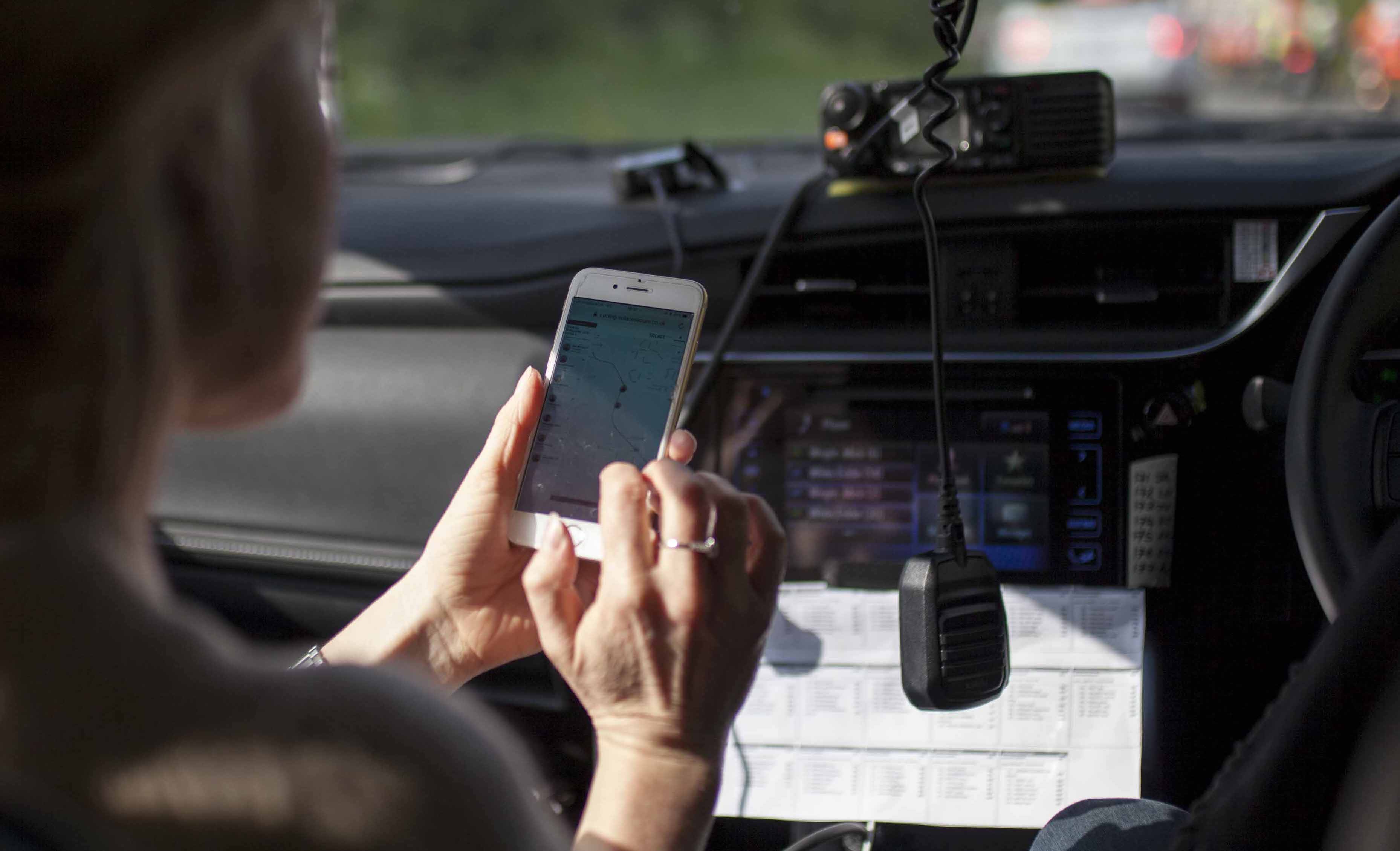
“While our mission at Solace Global is to provide comprehensive travel risk management and security services that prepare, protect and assist people and assets in the event of an incident or emergency, our values are aligned to those of the Vitus Pro Team.” “I witnessed the team put those values into action at the Tour de Yorkshire, racing with commitment, discipline and team spirit to compete with the elite teams of world cycling.” “Those shared values made our decision to extend Solace Global’s relationship with the team an easy one to reach. We couldn’t hope for better ambassadors to share our values with a wider audience.” Solace Global provides a host of specialist security and risk management solutions, coordinated from its 24/7/365 response centre in Poole.
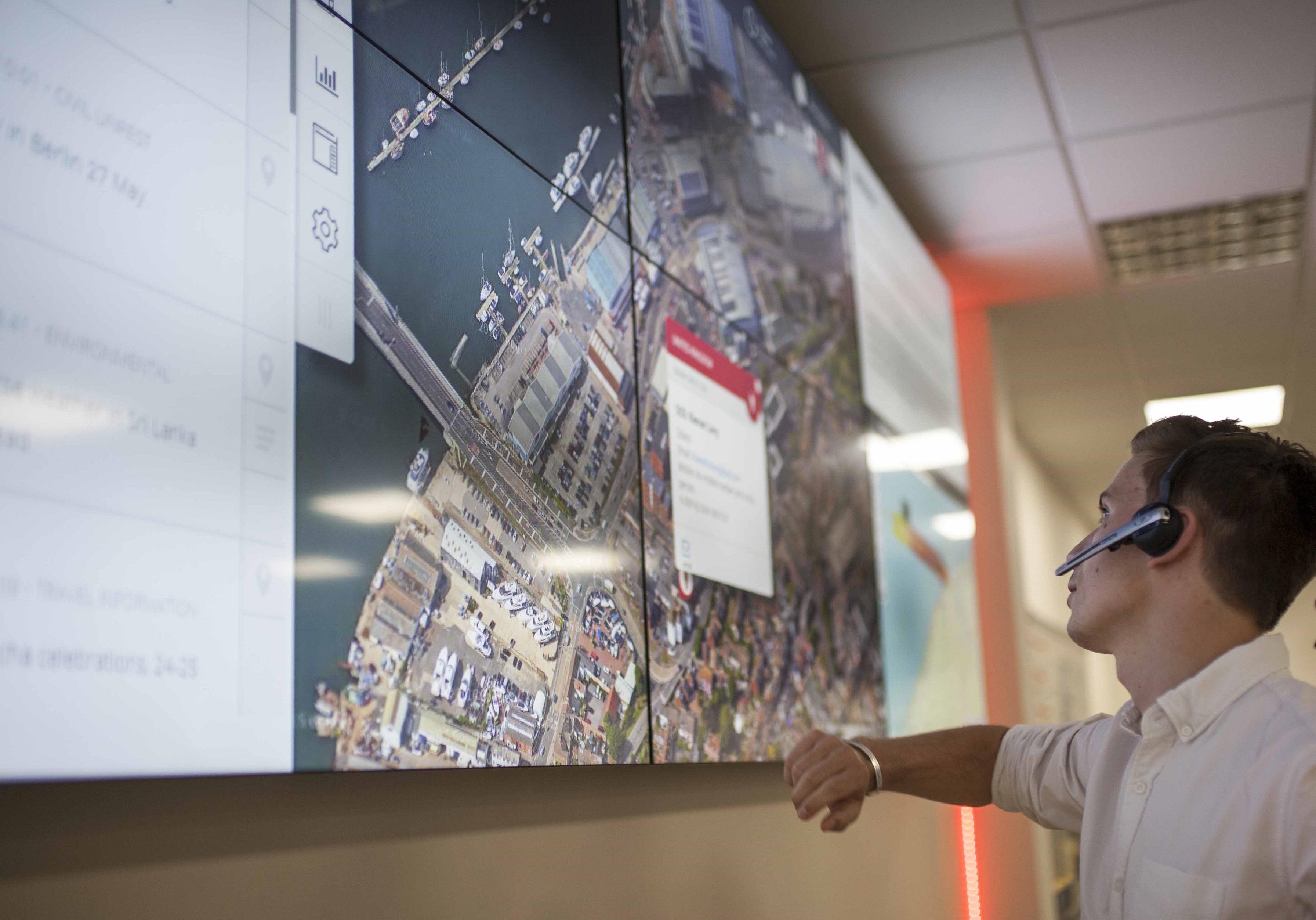
An impressive portfolio of case studies demonstrates Solace Global’s reach and effectiveness. Supporting NGOs evacuating out of Sudan, bespoke intelligence products to help inform decision making, Media Crews filming amongst cartels and mafia bosses, retailers with young buyers flying around the world previously with little to no tracking, monitoring or consideration for safety and large corporates with a need to operate in hostile environments safely. There are few places Solace do not find themselves in and are constantly innovating to help their clients best manage their risks, in accordance with their individual needs and requirements.

Cherie Pridham, the owner and manager of Vitus Pro Cycling Team, Powered By Brother UK, said she was delighted to have the support of Solace Global in the 2019 season; a campaign in which her significantly strengthened squad of riders is expected to feature prominently in Britain’s biggest bike races. “Solace Global’s business strategy relies upon the utmost professionalism, and I’m proud to say that we hold identical standards for Vitus Pro Cycling Team, Powered By Brother UK,” Pridham said. “Solace began our relationship by demonstrating their commitment to innovation, and have continued with the same reassuring support that their clients rely on. I’m delighted that Solace Global will again be our partners in 2019.”
Global Security Forecast – Week 17

United Kingdom: London Extinction Rebellion protest ends, 25 April Over the last two weeks, the environmentalist group Extinction Rebellion has held a number of protests and sit-ins around the world demanding the recognition of the ongoing climate emergency. The largest event has been in London and travel disruption within the city has been significant. The protests were centred around five key locations in central London including Mable Arch, Parliament Square, Waterloo Bridge, Oxford Circus, and Piccadilly Circus. So far over 1,000 people have been arrested. However, on 24 April, Extinction Rebellion announced that they would be ending their protests and blockades early on 25 April. They argued that their point had been made and that the climate conversation was back in the national agenda. A closing event was held at 18:00 BST at Hyde Park’s speakers corner. The protests have been largely peaceful although damage was done to the Shell HQ in London. Hundreds of solidarity protests occurred in cities all over the world although it is unclear if they will continue beyond the 25 April. A police presence is likely to remain in key location over the weekend.
Mozambique: North Cyclone Kenneth makes landfall in northern regions bringing heavy rainfall and high winds Extreme winds and heavy rain have started to cause damage across northern Mozambique. Kenneth made landfall in Cabo Delgado, about 100 km (62 miles) north of Pemba at the end of the day on Thursday. The storm had maximum sustained winds of 200 km/h (124 mph), the equivalent of a Category 4 hurricane in the Atlantic or eastern Pacific oceans. Forecasting services are expecting a slow-moving cyclone, which could remain in the area at the north of the country close to the border with Tanzania, with several days of continuous rain that are likely to cause severe flooding and disruption. Storm surges of around 3-5 meters have occurred in coastal areas around Cabo Delgado. Schools and airports across the region have closed in preparation for the storm. Cyclone Kenneth is the first storm of this strength to hit Mozambique’s northern province of Cabo Delgado since records began 60 years ago. Before reaching Mozambique, Kenneth killed three people in the Comoros Islands. Sustained heavy rainfall of 250mm (10 Inches) is expected across most areas with some areas anticipated to receive 1,000mm (40 inches). Mozambique is still reeling from cyclone Idai which killed over 1,000 people and left tens of thousands displaced in the south of the country at the start of April.
Russia: Vladivostok President Putin hosts North Korean leader for first bilateral summit North Korean leader Kim Jong Un arrived in Russia on an armoured train for a bilateral meeting with President Putin on Wednesday 24 April and was greeted by a military band. The two leaders met for the first time on Thursday on Russky Island and reaffirmed their commitment to enhancing relations, deescalate tensions and improve the security environment in the region. Russia also expressed the desire for a multilateral approach to the denuclearisation of the Korean Peninsula and the reopening of the Six-Party Talks, which were held between 2003 and 2007, but failed to reach an agreement. This consultation comes shortly after the failure of the second US-DPRK (Democratic People’s Republic of Korea) meeting that was held in Hanoi in February and was cut short by President Donald Trump over a disagreement regarding the terms of the denuclearisation process. Many believe this to be a retaliatory move by Kim Jong Un, who reportedly executed four foreign affairs officials after the summit failure. The meeting of Putin and Kim puts additional pressure on the US to be more flexible in future talks. Kim’s trip also adds to his new image of international statesman rather than despotic dictator, having now successfully put the diplomatic ball back in the US’s court.
Myanmar: Hpakan Landslide in a jade mine in Kachin State kills 54 At least 54 people are suspected to have been killed in a mudslide that took place in a jade mine on 22 April at 23:30 local time. According to local authorities, a mud filter collapsed at a mine in the Hpakan region in Myanmar, trapping the workers while they were sleeping. Rescue operations began early on Tuesday with three bodies recovered from the rubble, but the authorities do not expect to find any more survivors. The area is known to produce some of the highest quality jade, which is exported to neighbouring China and fuels a notoriously dangerous illegal trade network, generating an estimated 31 billion USD every year. The miners, most likely small jade pickers, are believed to be internal migrants who dug through the debris produced by big mining companies to find the precious mineral. Incidents of this kind are a frequent reality in Myanmar with dozens dying every year, especially during the monsoon season in mines that are opened without adequate considerations over health and safety regulations. According to statistics, the overall death toll has been rising in the past years, particularly as the establishment of a civil government in 2010 led to the lifting of several international sanctions previously affecting jade exports.
South Africa: KwaZulu-Natal province Heavy rains result in deadly flooding and mudslides in South Africa Torrential rain that lasted days and culminated with a severe downpour on Monday resulted in mudslides, flooding and structures collapsing in the coastal province of KwaZulu-Natal, in the southeastern region of South Africa. Emergency services are working to provide aid, while authorities have declared a death toll of approximately 60 people. The flooding severely disrupted businesses and caused more than 1,000 people to be displaced. Dozens of people have been taken to hospital, and search and rescue teams are looking for more survivors under the rubble of collapsed buildings. The flooding has also affected the neighbouring East Cape Town province, killing three people. Severe weather warnings remain in place and the risk is considered high particularly in coastal areas. On Sunday, the heavy rains led to the death of 13 people by causing a church in KwaZulu-Natal to collapse during Easter mass.
Spain: Nationwide Spain will hold a snap election on Sunday 28 April On 28 April, Spain will hold the third election in 4 years, in the latest attempt to form a stable government amidst polarising issues such as corruption, immigration and Catalan separatism. The election was called by Prime Minister Pedro Sanchez after less than a year since his inauguration, due to the repeated rejections of its yearly budget by the Parliament. Currently, the polls show the traditional Socialist Party in the lead. The ever-shifting political stances among Spain’s multiparty system and a fragmented electorate makes it virtually impossible for the leading party to form a strong majority, perpetuating the chronic instability in the government. For years, in fact, the power has been held by main traditional parties, such as the Socialist and the Popular Party, which historically governed alone or with smaller parties, generally avoiding a bipartisan coalition. However, the recent fragmentation in Spanish politics has sparked the emergence of smaller political factions, such as the centrists Ciudadanos, Unidos Podemos and the right-wing Vox. This division in the electoral support has made it impossible for the main political forces to gain a definitive majority in the elections and the radicalisation of the smaller political parties also contributed in making the coalition more volatile.
Japan: Kyoto Japanese emperor to step down on 30 April On 30 April, Japan’s Emperor Akihito, who has reigned since January 1989, will step down from the Chrysanthemum Throne. This is the first abdication in Japan’s monarchy in two centuries. Emperor Akihito has stated that his health is his primary motive for his abdication, particularly following his heart surgery in 2012. Celebrations and events are planned across the country for the abdication ceremony that will be held on 30 April. This ceremony will be a small private gathering with only 300 guests. Japan’s Imperial Household Agency lists Emperor Akihito as the 126th emperor of Japan with verified accounts of this family stretching back until the sixth century. The role is now largely symbolic as the emperor has no say in politics, but holds great significance to the Japanese populous. Akihito’s eldest son, 59-year-old Crown Prince Naruhito, will take the throne the following day in a series of solemn ceremonies, receiving the imperial regalia – an ancient mirror, sword and jewel – considered crucial evidence of an emperor’s legitimacy.